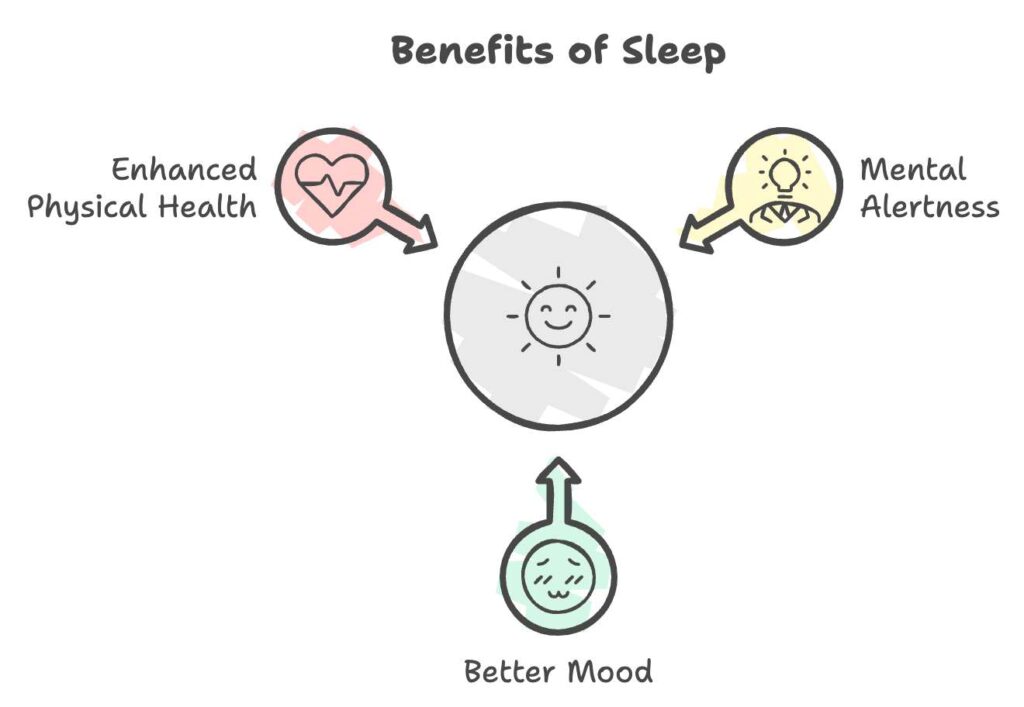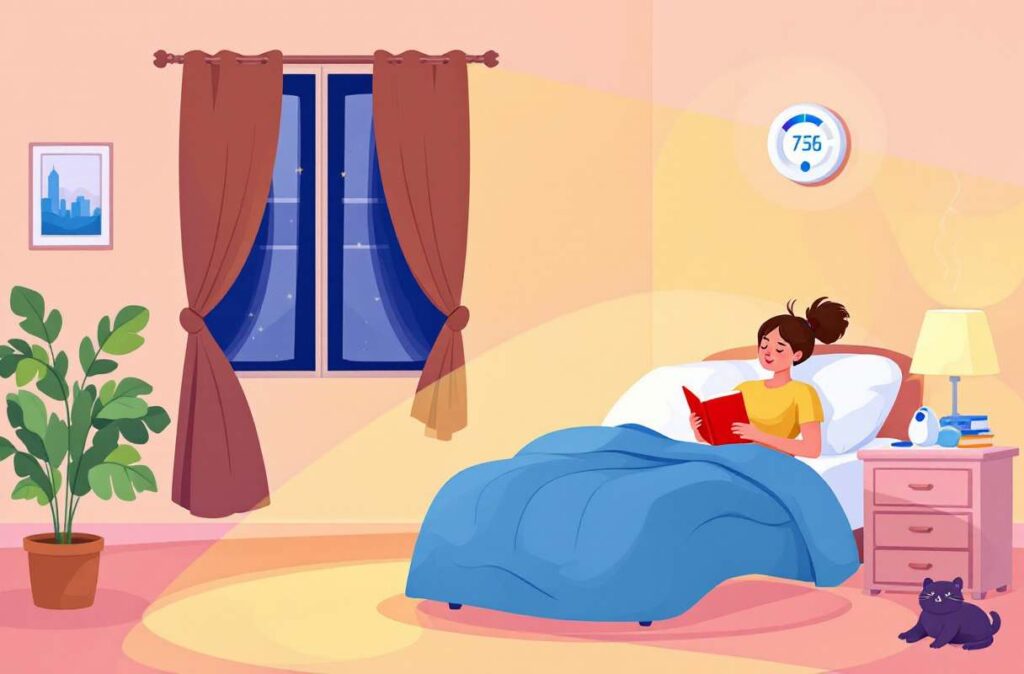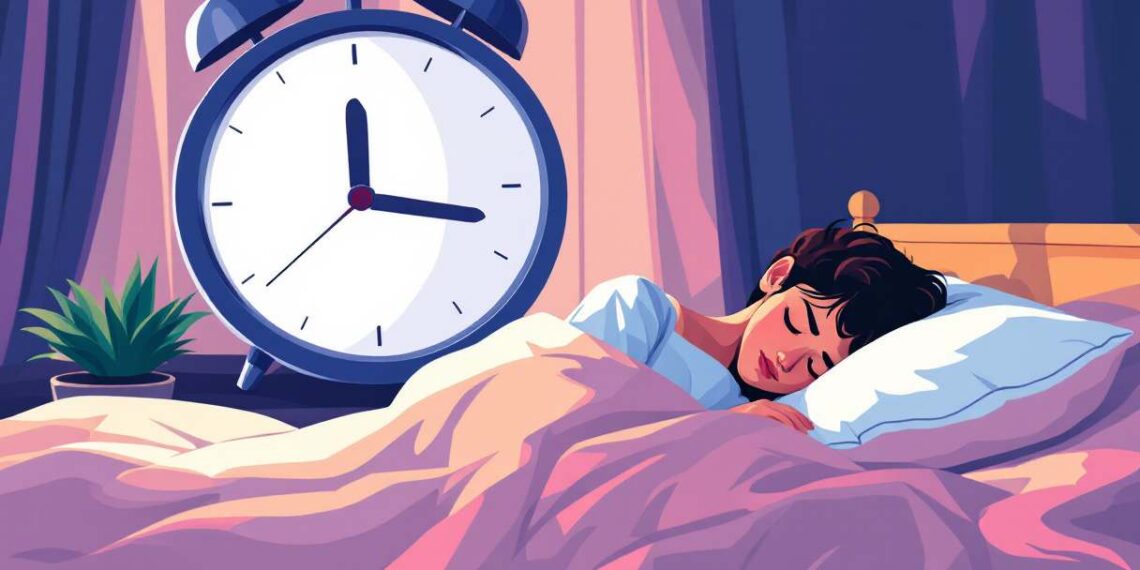Ever wonder why some days you’re ready to conquer the world, while on others, you can barely conquer your coffee maker? The secret might be hiding in plain sight – right on your nightstand.
Welcome to the world of sleep consistency, where the simple act of hitting the hay and rising at the same time each day can be your superpower. In our 24/7 society, where Netflix binges and late-night scrolling have become the norm, the idea of a consistent sleep schedule might seem as outdated as a landline phone. But here’s the kicker: this old-school habit could be the key to unlocking better health, sharper thinking, and a sunnier disposition.
Let’s dive into why syncing up with your body’s natural rhythm isn’t just a good idea – it’s a game-changer for your overall well-being.
Importance of Sleep Consistency
Understanding the Impact of a Consistent Sleep Schedule
Keeping your sleep schedule in check isn’t just a health tip—it’s like finding the secret sauce to good sleep. Hitting the hay and jumping out of bed at the same times each day helps your body stay in rhythm, in tune with its own little internal clock, scientifically dubbed the circadian rhythm. This rhythm is the thing that nudges you awake, signals your body to sleep, and even throws in some hormone regulation for good measure.

The perks of sticking to this routine aren’t just a bedtime story. When you’re consistent, falling asleep becomes as easy as blinking, and staying asleep feels like second nature. Break this pattern, though, and you’re in sleep debt territory—next thing you know, you’re dragging yourself through your day with foggy thoughts and drained energy. If you’re curious about this ‘sleep debt’ business, swing by our article here on sleep debt.
People who keep a lock on their sleep schedule often find a boost in their mental wellness and control over their emotions. This rings particularly true for parents setting up sleep rituals for their kiddos—the wee ones tend to copy what the big folks are doing in the sleep department. Need a helping hand with that? Pop over to our tips on bedtime rituals.
Check out this table if you’re wondering how your sleep stacks up against your mood and health:
| Sleep Duration | Effects |
|---|---|
| 7-9 hours | Brain is sharp, mood is steady |
| 5-6 hours | Touchy-feely irritability and focus issues |
| Less than 5 hours | Major health risks and constant nodding off |
Making sure you’re on a steady sleep timetable can play a big part in taking care of your health. This can be particularly challenging for those juggling shifts or kids who’ve been sneaky about staying up late. Curious about how to wrangle these sleep challenges? Visit us over on our weekend sleep patterns.
Dabble in some pre-sleep activities that help rather than hinder sleep. Cutting back on screens and winding down with some relaxation techniques can make sleeping smooth sailing. For more tips on how to chill before sleep, take a look at our piece on evening habits for better sleep.

Benefits of a Consistent Sleep Schedule
Having a regular sleep schedule ain’t just for children— it’s a game-changer for everyone. If you’re battling sleep issues, trying to set routines for your little ones, clocking odd hours at work, or you’re simply getting on in years, sticking to a sleep pattern might make life a tad easier.
“The best bridge between despair and hope is a good night’s sleep.” – E. Joseph Cossman
Improved Sleep Quality
Following a set sleep routine helps your body get the memo about when to hit the hay. Going to bed and waking up around the same time daily lines up your body’s internal clock, a fancy term called circadian rhythm. Guess what? This makes your snooze time deeper and more refreshing!
| Sleep Perk | Same Time Each Day | When You Don’t |
|---|---|---|
| Snooze Start (how quick you fall asleep) | 10-15 mins | 20-30 mins |
| Mid-Sleep Check-Ins | 1-2 times | 3-5 times |
| Total Sleep | 7-9 hours | 5-7 hours |
Better sleep? More pep in your step for whatever life throws at you.
Enhanced Mental Alertness
Nailing a regular sleep pattern can up your brain game. You might find your memory is suddenly on point, you tackle problems like a pro, and you can finally remember why you walked into a room. Studies show people with sleep routines are more wide-awake during the day.
| Brain Power | Routine Sleep | No Routine |
|---|---|---|
| Focus Level (1-10 scale) | 8-9 | 5-6 |
| Memory Accuracy (%) | 90% | 70% |
| Quick Thinking (seconds) | 2-3 seconds | 4-5 seconds |
Sharper mind means more gets done, and friends and family might even find you more tolerable!
Better Mood Regulation
Keeping your sleep predictable also helps keep your mood steady. Inconsistency in sleep can mess with your emotions, leading to worries and blues. With a set pattern, expect fewer ups and downs, and a calmer day-to-day vibe.
| Mood Control | Routine Sleep | Sleepy Chaos |
|---|---|---|
| Mood Balance (scale 1-10) | 8-9 | 4-5 |
| Swing Days per Week | 1-2 | 4-5 |
| Cheerful Meter (scale 1-10) | 7-8 | 5-6 |
Add good habits and you’ve got yourself a recipe for solid mental health. Need more tips? Check out our article on sleep hygiene and explore bedtime rituals to help you unwind before bed.

Keeping a Steady Sleep Schedule
Getting your Z’s on a regular routine is like hitting the jackpot for your snooze quality! Some easy, practical shifts can line your schedule up nicely for dreamy nights and chipper mornings.
“Your future depends on your dreams, so go to sleep.” – Mesut Barazany
Picking a Set Bedtime
Nailing down a bedtime and sticking to it like glue trains your body clock like a pro. With this practice in place, lights out and eyes open happen naturally over time.
| Age Group | Snooze Needed | Suggested Bedtime (If Waking at 6 AM) |
|---|---|---|
| Adults | 7-9 hours | 9 PM – 11 PM |
| Teens | 8-10 hours | 8 PM – 10 PM |
| Kiddos | 9-14 hours | 7 PM – 9 PM |
| Seniors | 7-8 hours | 9 PM – 10 PM |
Prepping for Sleep
Sort out a mellow pre-snooze routine to give your body the memo: calm time, here we come. Events like reading, a bit of stretching, or mastering the old 4-7-8 breathing technique can help flick that mental switch to off.
Handy tips for those cozy nighttime rituals:
- Dim those lights an hour before hitting the hay.
- Cut the screen time and consider a digital detox for better snooze.
- Get mindful with things like meditation or jotting down thoughts in journals, ideas to be expanded in sleep journaling.
Crafting a Comfy Sleep Haven
Your snooze zone plays a huge part in how well you sleep. You need a chill, comfy dive to land you in dreamland.
Spot-on tweaks you might make:
Room Temp: Keep it cool—think 60 to 67 degrees Fahrenheit. It’s Goldilocks weather for snoozing.
Light and Sounds: Lower the volume and light levels. Blackout curtains and whisper-quiet white noise machines can set the chill vibes.
Your Sleep Gear: Getting a mattress and pillows that fit you like a glove can up your snooze game.
Set yourself up with these tricks to build a steady sleep schedule. Better habits mean better snoozing overall. For more pointers, check out evening habits for better sleep and learn from some healthy sleep habits.
Challenges and Solutions
Getting a grip on a steady sleep schedule can be tough, especially when life throws its curveballs. Let’s dive into some bump-in-the-road moments and smart hacks to smooth them out.
Dealing with Shift Work
Working odd hours can turn your sleep routine on its head. Night owls or early risers by force might feel like they’re chasing a solid sleep pattern.
Try these:
- What’s Your Sleep Game Plan?: Once your hours are set, map out when you hit the hay.
- Play with Lighting: Turn on the sun when you’re up and black out your sleep cave when it’s dream time. Brighten things up when the grind starts and tuck away in the dark at home.
- Nap Like a Pro: Catch some Z’s before clocking in. Learn more tricks about napping in our piece on power naps.
| Game Plan | What it Does |
|---|---|
| Sleep Schedule | Plan your crash time around shifts |
| Light Play | Light controls wake and sleep vibes |
| Pro Nap | Quick snooze boosts pre-shift alertness |
Overcoming Insomnia
Having a tough time nodding off or staying out of dreamland? Insomnia can throw your sleep schedule right out the window.
Give these a shot:
- CBT-I Know-How: This method tweaks negative sleep ideas and habits. Peek into more in our cbt-i article.
- Bedtime Cool Down: Unwind with a little reading or the 4-7-8 breathing trick before sliding into bed.
| Trick | What’s the Good Word |
|---|---|
| CBT-I | Shift those pesky sleep thoughts |
| Chill Before Bed | Wind down with a routine pre-snooze |
Managing Weekend Deviations
Weekends can be the freeloaders that cause a mess in your tidy sleep spot – turning sleep-ins or afternoon naps into sleep-cycle bandits.
Here’s the play:
- Set Sleep Boundaries: Don’t snooze too long on weekends. Keep nap and sleep times as usual, as we chat about in weekend sleep patterns.
- Rise and Shine, Every Day: Roll out of bed at the same time, weekend or not.
| Weekend Plan | What’s it Change |
|---|---|
| No Marathon Sleeps | Keep sleep stretches even on the weekend |
| Daily Wake Routine | Greet the morning at the same hour anytime |
Tackling these tricky parts with smart steps can sharpen your schedule for catching Z’s, plus give your health a sweet boost. Curious for more sleep talk? Check out sleep hygiene and digital detox for sleep to keep learning.
Sleep Schedule Tips for Different Age Groups
Nailing down a steady sleep routine is key to getting that quality shut-eye we all crave—whether you’re a kid, a teenager, or enjoying your golden years. Here’s some handy advice to help folks of all ages catch their Z’s like pros.
Children and Sleep Consistency
Kids need rhythm more than a good dance song, especially when it comes to bedtime. A set sleep routine helps their bodies get into gear for growth and learning. Think of it like training a little clock inside them to buzz off right on time every morning.
| Age Group | How Much Sleep They Need |
|---|---|
| Infants (0-3 months) | 14-17 hours |
| Toddlers (1-2 years) | 11-14 hours |
| Preschoolers (3-5 years) | 10-13 hours |
| School-aged (6-13 years) | 9-11 hours |
Parents might want to try cozy bedtime routines to give the kiddos a hint that it’s officially wind-down season. Reading a story, shutting off screens, or quiet play are great ways to turn a wild heart into sleepy sighs.
Teenagers’ Sleep Patterns
Teenagers—these sleep rebels—tend to stay up late thanks to some crazy hormonal changes and social scene pressures. Still, keeping a regular sleep schedule is just what the doctor ordered for their growing brains and bodies.
| Age Group | How Much Sleep They Need |
|---|---|
| Teenagers (14-17 years) | 8-10 hours |
To help them lurk off to dreamland, it’s worth cutting down on screen time with a digital detox for sleep. Also, getting into relaxation moves like the 4-7-8 breathing technique can mellow them out before crashing.
Sleep Considerations for the Elderly
With age comes wisdom—and lighter slumber plus the nodding off at dawn. Older folks need a smooth sleep setup to dodge those pesky night awakenings.
| Age Group | How Much Sleep They Need |
|---|---|
| Seniors (65+ years) | 7-8 hours |
Elders can up their sleep scorecards by mixing in a bit of light jogging or yoga and relaxing before hitting the sack. Keeping track with sleep journaling could help spot what’s working or what’s not. Plus, tweaking things like dim lighting and quiet surroundings can pack a better night’s sleep punch.
Tuning into the sleep needs of various ages can set peeps up for a better rest and a happier life. After all, we all deserve a shot at peaceful slumbers!
Conclusion
As we’ve journeyed through the land of consistent sleep, from understanding its impact to navigating the challenges it presents, one thing becomes crystal clear: your bedtime routine is more than just a habit – it’s a powerful tool for transformation. Whether you’re a night owl trying to sync with the early bird world, a shift worker battling an ever-changing schedule, or a parent aiming to set a good example for the kiddos, embracing sleep consistency can be your ticket to better days and restful nights. Remember, it’s not about perfection – it’s about progress. Small steps, like setting a regular bedtime or creating a cozy sleep environment, can lead to big changes in your energy, mood, and overall health. So tonight, as you set your alarm for tomorrow, know that you’re not just planning your wake-up call – you’re setting the stage for a more vibrant, focused, and balanced you. Here’s to embracing the rhythm of restful nights and energized days ahead!
FAQs
How long does it take to establish a consistent sleep schedule?
It typically takes about 2-3 weeks of consistent effort to establish a new sleep routine. However, individual experiences may vary, and some people might adapt more quickly or need more time.
Can I make up for lost sleep on weekends?
While it’s tempting to “catch up” on sleep during weekends, it’s best to maintain a consistent sleep schedule all week. Large variations in sleep times can disrupt your circadian rhythm and lead to “social jet lag.”
How does daylight saving time affect sleep consistency?
Daylight saving time changes can disrupt sleep patterns. To minimize impact, gradually adjust your sleep schedule by 15 minutes each day leading up to the time change.
Is it okay to nap if I have a consistent sleep schedule?
Short naps (20-30 minutes) early in the afternoon can be beneficial without disrupting nighttime sleep. However, long or late-day naps might interfere with your regular sleep schedule.
How can I maintain sleep consistency if I travel across time zones?
When traveling, try to adjust to the new time zone quickly by exposing yourself to daylight and following local meal times. Maintain your usual sleep duration and try to sleep at appropriate times in the new time zone.
Additional resources
- National Sleep Foundation: “Sleep Hygiene”
https://www.sleepfoundation.org/sleep-hygiene - American Academy of Sleep Medicine: “Healthy Sleep Habits”
https://sleepeducation.org/healthy-sleep/healthy-sleep-habits/ - Mayo Clinic: “Sleep tips: 6 steps to better sleep”
https://www.mayoclinic.org/healthy-lifestyle/adult-health/in-depth/sleep/art-20048379 - Sleep Foundation: “Circadian Rhythm”
https://www.sleepfoundation.org/circadian-rhythm








